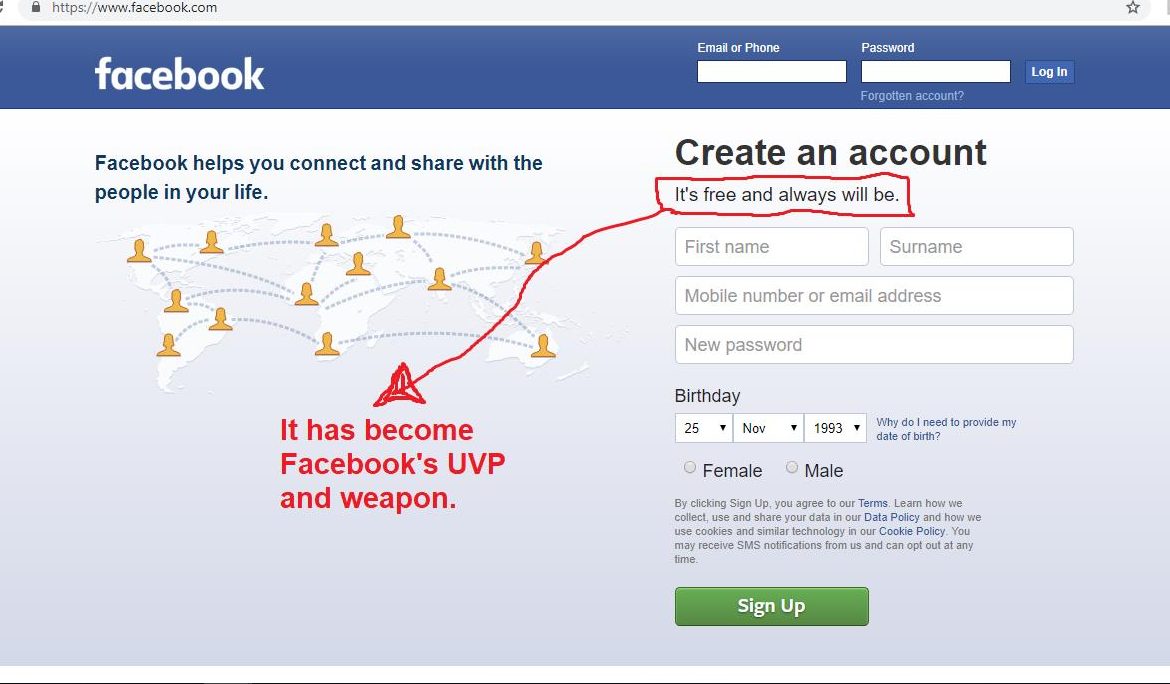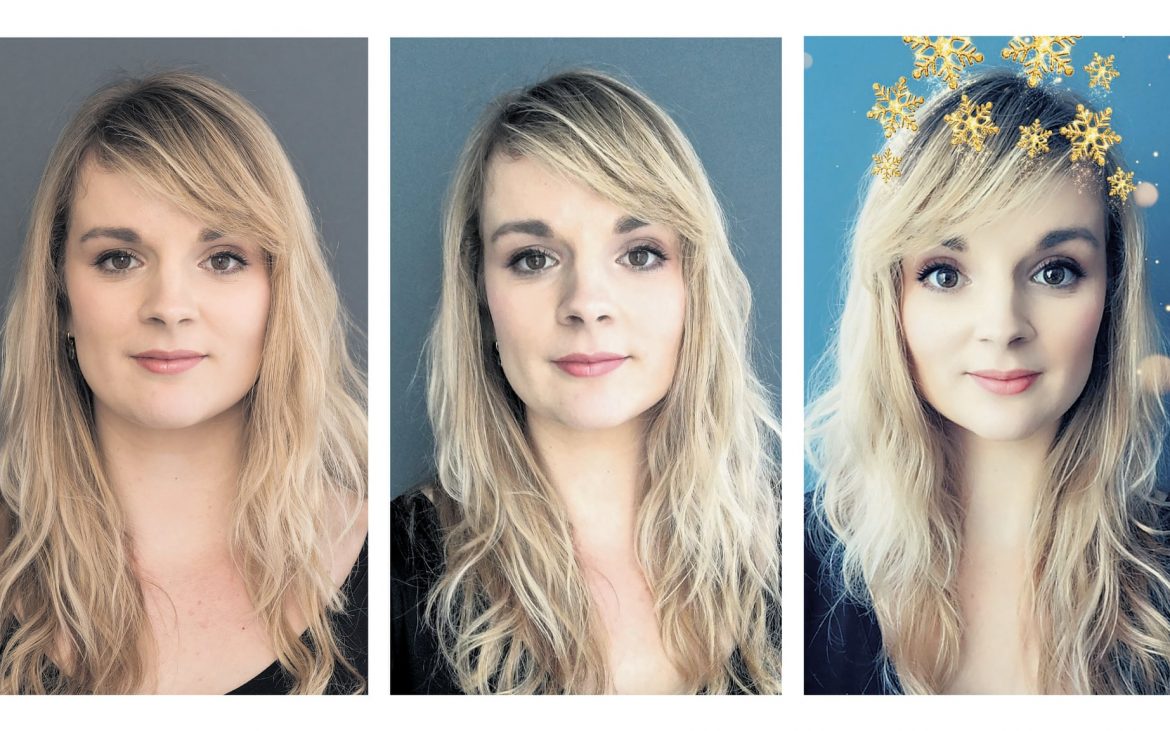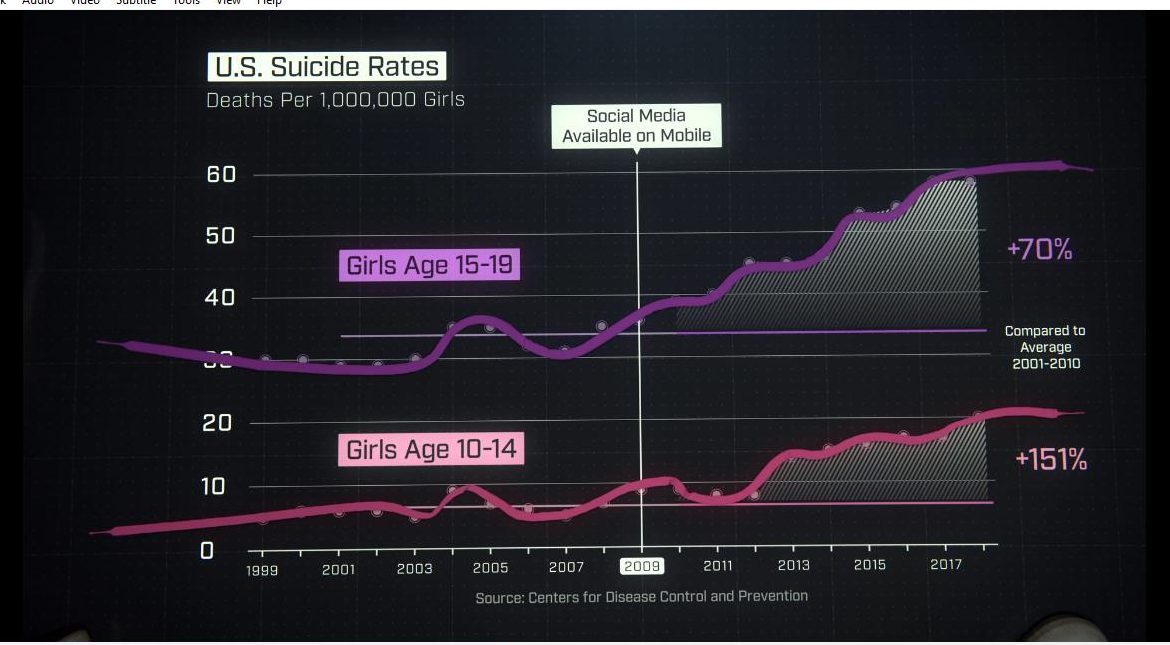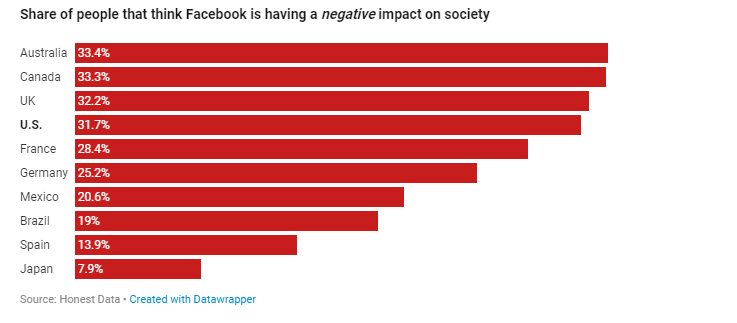
Netflix released ‘The Social Dilemma’, a film in September 2020. This film critically unveiled a wide range of aftermaths that social media is creating backstage. Critics termed it as a docufiction that breathtakingly revealed the flipside and the dangerous pitfalls of social media platforms like Facebook, Instagram, YouTube, Twitter, Google, Pinterest, Snapchat, TikTok, etc.
‘The Social Dilemma’ offers an eye-opening look at a world that so few really understand although a growing number of people are concerned as well. Throughout the film various product engineers, executives, and managers of Facebook, Google, Uber, Apple, Twitter go into great detail into the ways tech giants are manipulating their users especially the teenagers’ behaviors and psyche through a range of services and features such as Facebook’s ‘Like’ button, notification systems, photo tagging, YouTube video recommendations, Google Inbox’s architecture, etc. The film protagonists termed social media as the persuasive technology which has their own goals – engagement, growth, or revenue goals. Whatever the goal they need to achieve they just dial that button a bit. The New York Times reported, “In Jeff Orlowski’s documentary ‘The Social Dilemma’, conscientious defectors from these companies explain that the perniciousness of social networking platforms is a feature, not a bug.”
Despite a lot of meaningful and systematic changes, social media brought to the world, these social media features make the platforms addictive and creepy and this is not a revelation to users because they can feel the negative compulsion, but they cannot ignore it. While the platforms have positive aspects we have not thought much about the downside of them yet. ‘The Social Dilemma’ blew the whistle in such a way that the film more than likely has an effect on the viewers to feel the urge to activate social media accounts. Most importantly, the film arouses the attention; now the social institutions, governments, and the mass people need to play their part in making social media adopt responsible and ethical behavior. Will this be possible? How will social media platforms respond to the argument that the film made? This article will shed light on social media’s business model, the growing concerns of data and privacy breaches, and the role of marketing companies to play a part.
Why do social media like Facebook, Twitter or YouTube amass data and what do they do with those? Which theories do support their activities and offer solutions of the industry’s problems? Let us dig deeper.
Behavioral Economics partly studies why human actions do not always follow the predicted economic models and why people make irrational decisions. On the other hand, Facebook or any other social media network tracks users' behavioral, demographic, and psychographic data and do tricks with these for predictive decision making. The psychologists argued that the features are designed to maintain the principles of a positive intermittent reinforcement. Thus, Facebook builds models with the data and matches users’ interests, tracks, and measures everything users do. Facebook does a lot of experiments with its data-driven knowledge of users’ rational and irrational behaviors to measure what might work and what does not. They utilize quite a bit of behavioral economics and behavioral sciences theories in their business. Putting ‘knowledge’ together, they push ‘unwanted’ advertisements and contents, sell users' data, and sometimes, sell privacy to third parties. So, it is imperative to understand social media e.g., Facebook’s business model from the business and economics points of view.

The above image captures how Facebook’s value proposition democratizes its idea of ‘sign up, let-us-know-about-you, and keep using for free’. While I signed up for Facebook back in 2007, it was free. When anyone signs up even today, they see, “It’s free and always will be.” Indicating Facebook’s business model, WIRED UK hearsays the marketing saying, “If you’re not paying; you’re the product!”, coined by media theorist and writer Douglas Rushkoff. This is a fact for all social media as none of them charge for signing up.
‘The Social Dilemma’, released by Netflix, sheds light on this thought. However, social media is playing a central role in our lives nowadays letting people capturing memories, staying connected, sharing information, news, and perennial happenings – this is how they create value around our life-spaces. In this article, Facebook is mostly used as a central example for relevant discussions. Facebook’s mission is to empower people to build community and bring the world closer. We no longer can ignore it as a product or business.
While going through theories of ‘Economics’ as a leisure reading, some theories intrigued my attention and arouse my spirit to write and analyze the issues critically. Coming across diverse theories, articles on traditional economics and behavioral economics lately, while I have had exposure to marketing, brand management, advertising theories, and practice, I found them are closely tied to each other.
Additionally, Michael Porter’s theory of “The Competitive Advantage of Nations” which describes the determinants of national and corporation’s competitive advantage, known as the Diamond Model, that edifies the factors of production, according to standard economic theory -- land, labor, natural resources, capital, and infrastructure. These determine the flow of trade whose origins date back to Adam Smith and David Ricardo and that is embedded in classical economics. But Michael Porter in his article clearly stated that the classical economics theories are quite incomplete and incorrect (Porter, 1990), in modern time, I also agree with this view.
Adam Smith and David Ricardo both focused on physical resources whereas World Wide Web, Facebook, Google, Uber, and most of the exponential organizations, the organizations whose impact is disproportionately large - at least ten times larger than their peers, are built on virtual space, heavy on non-physical resources. Intrigued with all these thought-provoking concepts, I have chosen to write on ‘social media’ to unveil some of their facts and figures. ‘The Social Dilemma’ just fueled my energy further.
Some businesses do trading – buy and sell, some offer products and services, some are systems integrators, some just use meta-market concepts, like in automobile meta-markets – hundreds of parts put together to make cars which are written in Kotler and Keller’s Marketing Management book published in 2012. Some use the classic value chain as opposed to the demand of platform theory that brings together producers and consumers, connect participants, and generate value in two-sided markets.
The modern-day platform companies are Uber, Airbnb, Google, Amazon, Apple, and of course, Facebook, Instagram, YouTube. While Klaus Schwab mentioned in his book ‘The Fourth Industrial Revolution’ that Facebook is the world’s most popular media owner which creates no content. Thus, Facebook’s business model is – a platform, media owner, and a social networking giant; a similar theory is applicable to YouTube as well. They have built undeniably the best business model in the world achieving the trifecta of high scale and high growth and high-profit margins, even unmatched by other exponential organizations, Forbes article reported.
Facebook almost does not need any cost of goods sold as the users and companies to provide them with contents. Their marketing cost is almost nil as the viral and word-of-mouth works for them on a daily basis. Their selling method is again a platform, where advertisers use a self-service and automated dashboard for ad placement. Recently, they started Facebook Shops, Facebook Watch which is similar to e-commerce and YouTube platforms. They are aggregating almost everything possible or we can think of. The e-shopping platforms or f-commerce businesses are exploiting social media for influencing the purchase decisions of many.
Facebook impacted US$ 227 billion of economic effects and 4.5 million jobs globally in 2014 by at least three ways: platform effects, marketing effects, and connectivity effects, a Deloitte study reported in 2015. In my opinion, these impacts have been tripled in the last 5 years. ‘The Social Dilemma’ claimed to have a trillion-dollar business by social media by now.
By connecting people and businesses, Facebook inspired disruptions and innovations through apps, revolutionized marketing, and advertising opportunities, and lowered the costs of reaching more people precisely and untapped new opportunities. Facebook stimulates global economic activity by providing tools for marketers to run campaigns, build awareness, drive sales locally, nationally, and globally within a compatible budget for businesses of all sizes; become a reliable platform for app developers, game developers.
Facebook created a huge demand for connectivity where mobile phones and different device manufacturers are positively impacted, mobile telephony carriers directly get benefitted, as well as all kinds of Internet Service Providers. Governments, non-profits, and civil society organizations also benefit from the discovery and the free flow of ideas that come from Facebook’s open communication platform, the same report of Deloitte unveiled in 2015 (source: Deloitte, 2015, Facebook’s Global Economic Impact).
‘The Social Dilemma’, the docufiction released by Netflix in September 2020 pointed out that social media and their addiction-driven features are tearing down the social norms, values and they are even invading into political and cultural issues.
The New York Times reported, “the manipulation of human behavior for profit is coded into these companies with Machiavellian precision: Infinite scrolling and push notifications to keep users constantly engaged; personalized recommendations use data not just to predict but also to influence our actions, turning users into easy prey for advertisers and propagandists.”
Much known issues are Facebook’s intervention in Brexit Referendum and US Election in 2016 and their recent fuel in the black people and police riot during George Floyd's death in 2020 arouses huge controversy. Facebook created few critical challenges recently – as it breaks data privacy, helps to spread fake news and misinformation, pushes too many advertisements to news feeds, some of them irk users. As they use Big Data capability consists of behavioral data, exploit users’ triggers, and precisely manage features to make users love ‘hearts-likes-thumbs-up’ and the result is, users, feel like an addiction.
Facebook, referencing an experiment conducted in the University of Michigan in 2017, itself admitted social media is bad for users. Newspapers reported they use Las Vegas’s casino Slot Machines kind of psychological gaming tricks that bring back users. Social media is hovering psychological disorders amongst new generations and making them envious.

‘The Social Dilemma’ unveiled that suicide rates and depression among American teenagers and pre-teenagers have gone up significantly once social media came into play in the 2010s (in the figure below). The film also captured that the platforms contributed to add on a disease called Snapchat dysmorphia which drives users to seek surgery for a perfect look! On the other hand, employers complain that employees are defocused in the workplace which posed continuous partial attention, coined by Linda Stone, caused by Facebook and social media.


The above graph shows the share of people that think Facebook is having a negative impact on society. The harshest externality of Facebook is around US Election 2016 where they sold 50 million users’ data to Cambridge Analytica. Cambridge Analytica misused those in the election rigging which is now a study topic in the public policy program at Stanford University. There is a rumor that Cambridge Analytica misused the consumers’ and people’s data during BREXIT Referendum and people misused Facebook during Arab Spring as well. Recently, similar activities found true during the George Floyd movement in the USA and around the world in 2020.
Chamath Palihapitiya, former Vice President of Growth at Facebook expressed ‘regret’ for his part in building tools that ripping apart society in an interview at Stanford Business School event, “The short-term, dopamine-driven feedback loops that we have created are destroying how society works.” “No civil discourse, no cooperation, misinformation, mistruth… this is a global problem” reported theverge.com in 2017. ‘The Social Dilemma’ movie captured this topic convincingly while the film showed Chamath Palihapitiya, who is renowned as the pioneer of scientific A/B Testing for small feature changes.
‘The Social Dilemma’ blew the whistle in such a way that the film more than likely has an effect on the viewers to feel the urge to activate social media accounts. Not only this, considering the lens of the Diamond Model of Michael Porter, I find, they started facing a demand conditions challenge, where Facebook’s countrymen had deleted some of their accounts in 2017 after the Cambridge Analytica data breach. They felt cheated. Their trust bruised. Considering all these, the European Union (EU) also imposed GDPR in 2019 to safeguard public data and their privacy.
After Mark Zuckerberg’s testimony before the Senate Judiciary and Commerce Committee on April 10, 2018 things had become gloomier as well. According to the Diamond Model, home conditions build help competitive advantage if the domestic users are the world’s most sophisticated and demanding users of the product or service.
From the macro-economic environment theory perspective, there have been few problems with political and social environments too. If I look through the lens of marketing and brand building rules, then Facebook or social media have broken ‘credibility’ and ‘security’ of judgments and feelings brand building blocks respectively, which falls under brand building pyramid theory of Kevin Lane Keller and Philip Kotler.
Building on this theory, one can argue that the breach of trust and ethical issues made Facebook face a tumultuous time in 2018 which continues till date in September 2020. ‘The Social Dilemma’ is the latest nail to the deterioration. Alongside breach of data-privacy, Facebook experiments with consumers’ psyche and emotional behaviors frequently. Users have become their experiment subjects - business guinea pigs and these have raised ethical concerns. All of the social media spread fake news and misinformation.
The latest Netflix-film ‘The Social Dilemma’ will aggravate the overall controversy of the platforms. The film referring Tristan Harris, a former design ethicist at Google, questioned that “Never before in history have 50 designers made decisions that would have an impact on two billion people.” The use of AI and algorithms to push adverts, notifications, choice moderations by the platforms have made the world into a scary place which continues to aggravate as the owners even do not know how to curb the greed and how to use the business model while the immense pressures from the shareholders, stock markets and the creepy capitalism are the extra additives! There is no or little regulation on social media and technology used for those.
There are some critics as well of the ‘The Social Dilemma’. The New York Times reported, “the film (The Social Dilemma) confuses two distinct targets of critique: the technology that causes destructive behaviors and the culture of unchecked capitalism that produces it.” But the film or the rebels do not offer any solution either.
The challenges can be analyzed using Porter’s Five Forces (Porter, 2008) model also. The bargaining power of buyers (end-users and advertisers) is high in the social media industry. Having no switching cost, people can easily switch to other social media. Though end-users have no switching cost, they cannot bargain while Facebook grabs information during use. Because users have given consent while signed-up.
Facebook even sells these to third parties. As a consequence, as mentioned, millions of users deleted accounts, and a group of users switched to other social media like Snapchat, Instagram, Twitter which result in user’s growth falls and adults over 18 are spending 31% less time on Facebook compared with two years ago, which translates into fewer opportunities to sell ads, reported the Economist in 2018.
Similarly, advertisers have the opportunity to switch to other media (TV, internet, search engines, print, outdoor-media) while sacrificing this captive audience on Facebook is hard for them. In my opinion, comparing the ratio of cost-benefits analysis, the advertisers are seemingly getting more benefits as reaching out to this audience and precise ad-targeting help advertisers. Thus, the bargaining power of buyers is found limited. However, instances are available that without proper justifications Facebook periodically increases ad-pricing; sometimes, Facebook wrongly measures reach, view, engagement, and other media KPIs and charges advertisers which have shaken the advertisers’ faith (Economist, 2018) This can be a serious concern for revenue drop and shares price falling if corrective actions are not taken.
The bargaining power of suppliers is low in this industry. Because, thousands of games, apps, and software-developers are available and other suppliers’ groups are also active to build relationships with Facebook. In my opinion, as a buyer, Facebook has become so powerful in this industry that it disregards the suppliers - games, and apps developers’ freedom and prices. From another point of view, providers of power, equipment, technology, data centers, storage represent the suppliers’ group to Facebook who evidently will have low bargaining power with a giant company like Facebook.

Facebook’s rivalry among the existing competitors is low as it has already acquired services like WhatsApp, Instagram, and Messenger. Other social networking service providers – Twitter, Skype, LinkedIn, Snapchat, Google+ are weak comparing to Facebook except for YouTube. The threat of substitute products and services is still low as it acquired competing services and agile enough to develop new products. Now, there are limited substitutes of Facebook; but, capitalizing Facebook’s sore spots any social networking site can flourish faster like Snapchat and TikToK are doing well with a young audience in recent times.
The threat of new entrants in the social media industry is moderate to high because entry barriers are low. Any promising startup can enter if they can develop smart software that connects the emotions, expectations, and other loopholes (privacy, security, governance) that Facebook is missing. Highly differentiated service, capturing audience faster and brand recognition are the main issues to success for newcomers.
Social media platforms have a lot to do to improve its business position, curb the discomforts of users and society, and rebuild their trust by ethically designed products and algorithms. Based on the previous analysis, it has become a predicament where to start offer logical solutions since they are maneuvering behavioral data to keep people busy, using attention-engineering techniques, and feeding people likes-shares entertainment items in newsfeeds. They could have adopted a responsible and ethical business mindset that drives the fairness and morality of economics.
Being corporate citizens, social media companies could have respected people’s data privacy, helped, and encouraged new generations to pursue mental well-being. The product engineers can use the ethics of technology before designing any AI and Big Data-driven product. This is one of the biggest arguments of ‘The Social Dilemma’ film as well. They should not invade and exploit fundamental rights like political views. This is an area where social media can pay attention to.
They need to be transparent and trustworthy to the advertisers and partners also; for example, Facebook many a time behaved selfishly with their advertisers. During the New Zealand terrorist attack in 2019, Google’s ad serving, and live streaming of mass killing has done the same.
Respecting mass people's emotions, the advertisers include Unilever and Coca-Cola stopped giving advertisements to the platforms, some other responsible brands withdrew their advertisements from Facebook after George Floyd case in 2020.
While a brand becomes big, people trust them, this is another area where Facebook and social media platforms can pay active attention to. Being a responsible business, they need to limit the misuse of bargaining power as a buyer and service- provider. Because over-use of bargaining power and clout is unhealthy for business relationships. Thus, Facebook may reassess its strategy of managing industry forces. Advertisers and end-users trust and happiness will ensure future revenues of Facebook and other platforms.
Regarding ethical concerns and rebuilding trust, as described earlier, a responsible and ethical mindset to be adopted first. This will open up opportunities to put the users’ privacy and security as the core. Facebook can also stop experimenting with users’ behaviors too much. They need to revise their algorithms, newsfeed, and ad-targeting in such a way that people’s mental well-being will be taken care of. However, to combat societal challenges, they can avoid invading and exploiting fundamental rights like political views.
They need to continue running truthful public relations campaigns so that message clearly goes to the public and users can understand Facebook’s intent and commitment on the issues that they are taking care of users’ utmost interests. Also, governance initiatives like watching or censoring contents, their promotions, strict regulations on election advertising, and spreading fake news can help to restore people’s trust. However, as it is renowned by now that the Facebook platform is misused by the Russians and Cambridge Analytica in 2016, people were curiously waiting to see US Election in November 2020 and social media’s role over there. This time social media’s influence was seemingly nil comparing to November 2016.
‘The Social Dilemma’ also urged the platforms and the governments to work together to arrange some form of ‘regulations’. Also, the governments of the USA, UK, Europe, or other countries, how will they act to curb the damage to society and the world due to the mass-destruction that social media triggers?
In recent times, all social media have started breaking people's trust and Facebook has weaponized mass social irresponsibility, Forbes reported in 2018. So, recommendations are, they need to curb the acts of irresponsibility, acknowledge users’ emotions, respect societies’ values, and people’s privacy. They should stop pushing and manipulating with unwanted issues taking the advantage of behavioral science theories that support that human beings are easily prone to gossips, fake news, rumors, ridiculous and irrational things (Kessler, 2018).
Though The New York Times reported: “To Facebook, we are all lab rats”, Facebook must have to understand that users are human beings; not experiment subjects, and needs to change this mindset. Human beings possibly will not tolerate irritations for long – be it with data privacy, be it adverts and/or be it with experimentations of being business guinea pigs. Revisiting business models, algorithms, security- settings, adopting ethical business practices would be timely decisions.
Overall, governance to be ensured across countries and markets around the world because upholding diversity and cultural differences is also crucial for social media success. These altogether will keep rebuilding trust. They need an updated value proposition and willingness to adjust their business models. Any business’s economic success lies in innovating, creating, and delivering superior value ethically which is a sustainable way that I can prescribe for the social media industry. The marketing companies or the advertisers also need to be responsible like Coca-Cola or Unilever who have shown that advertisers even can withdraw their support if the ‘right’ things are ignored by social media.
“The Social Dilemma” is well-accepted by the Netflix audience and the netizens. It blew the whistle well and “remarkably effective in sounding alarm” regarding the misuse of data, incursion of data mining, the usage of a manipulation-based technology environment that triggering users’ emotions, invading into politics, culture, and invading into our social lives. Now, the time has come to design technology products ethically and responsibly. Maybe it is high time to see how the social media industry responds to ‘The Social Dilemma’.
Disclaimer: References are available on request.
